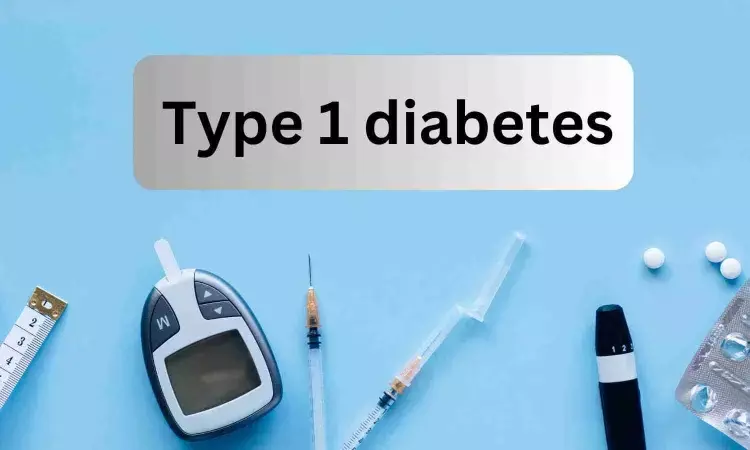- Home
- Medical news & Guidelines
- Anesthesiology
- Cardiology and CTVS
- Critical Care
- Dentistry
- Dermatology
- Diabetes and Endocrinology
- ENT
- Gastroenterology
- Medicine
- Nephrology
- Neurology
- Obstretics-Gynaecology
- Oncology
- Ophthalmology
- Orthopaedics
- Pediatrics-Neonatology
- Psychiatry
- Pulmonology
- Radiology
- Surgery
- Urology
- Laboratory Medicine
- Diet
- Nursing
- Paramedical
- Physiotherapy
- Health news
- Fact Check
- Bone Health Fact Check
- Brain Health Fact Check
- Cancer Related Fact Check
- Child Care Fact Check
- Dental and oral health fact check
- Diabetes and metabolic health fact check
- Diet and Nutrition Fact Check
- Eye and ENT Care Fact Check
- Fitness fact check
- Gut health fact check
- Heart health fact check
- Kidney health fact check
- Medical education fact check
- Men's health fact check
- Respiratory fact check
- Skin and hair care fact check
- Vaccine and Immunization fact check
- Women's health fact check
- AYUSH
- State News
- Andaman and Nicobar Islands
- Andhra Pradesh
- Arunachal Pradesh
- Assam
- Bihar
- Chandigarh
- Chattisgarh
- Dadra and Nagar Haveli
- Daman and Diu
- Delhi
- Goa
- Gujarat
- Haryana
- Himachal Pradesh
- Jammu & Kashmir
- Jharkhand
- Karnataka
- Kerala
- Ladakh
- Lakshadweep
- Madhya Pradesh
- Maharashtra
- Manipur
- Meghalaya
- Mizoram
- Nagaland
- Odisha
- Puducherry
- Punjab
- Rajasthan
- Sikkim
- Tamil Nadu
- Telangana
- Tripura
- Uttar Pradesh
- Uttrakhand
- West Bengal
- Medical Education
- Industry
Breakthrough combo therapy for type 1 diabetes: SGLT2 inhibitors + GRAs boost control, cut insulin use, study reveals

USA: In a significant development for treating Type 1 diabetes (T1D), researchers have conducted a randomized clinical trial testing a combination therapy involving SGLT2 inhibitors and glucagon receptor antagonists. This innovative approach aims to improve blood sugar management and potentially reduce the risk of complications associated with the disease.
The study, published in Diabetes Care, revealed that sodium-glucose cotransporter 2 (SGLT2) inhibitors plus glucagon receptor antagonists (GRAs) may reduce insulin use, improve glycemic control, and mitigate ketogenesis risk compared with SGLT2 inhibitors alone in patients with type 1 diabetes.
The researchers revealed that glucagon antagonism enhances the therapeutic effects of SGLT2 inhibition in T1D.
SGLT2 inhibitors are commonly used to treat Type 2 diabetes by blocking glucose reabsorption in the kidneys, thereby promoting excretion through urine. On the other hand, glucagon receptor antagonists work by blocking the action of glucagon, a hormone that raises blood sugar levels, thereby reducing the overall blood glucose levels.
Jeremy H. Pettus, University of California, San Diego, La Jolla, CA, and colleagues aimed to examine the effects of insulin-adjunctive therapy with an SGLT2 inhibitor and a GRA on glycemia, insulin use and ketogenesis during insulinopenia in type 1 diabetes.
For this purpose, the researchers conducted a randomized, double-blind, placebo-controlled, crossover trial to assess the effects of adjunctive SGLT2 inhibitor therapy (dapagliflozin 10 mg daily) alone and in combination with the GRA volagidemab (70 mg weekly) in 12 adults with type 1 diabetes.
Continuous glucose monitoring, insulin withdrawal tests (IWT), and insulin dosing for measurement of ketogenesis and glucose during insulinopenia were completed during SGLT2 inhibitor, insulin-only (Baseline), and combination (SGLT2 inhibitor + GRA) therapy periods.
The study led to the following findings:
- Average glucose and percent time with glucose in range (70–180 mg/dL) improved with combination therapy versus Baseline and SGLT2 inhibitor (131 versus 150 and 138 mg/dL and 86% vs. 70% and 78%, respectively) without increased hypoglycemia.
- Total daily insulin use decreased with combination therapy versus Baseline and SGLT2 inhibitor (0.41 versus 0.56 and 0.52 units/kg/day).
- Peak β-hydroxybutyrate levels during IWT were lower with combination therapy than with SGLT2 inhibitor (2.0 versus 2.4 mmol/L) and similar to levels reached during the Baseline testing period (2.1 mmol/L).
- Participants reported enhanced treatment acceptability and satisfaction with combination therapy.
"These outcomes underscore the critical role of glucagon in T1D metabolism and the potential of blocking glucagon action, which could facilitate the safe use of SGLT2 inhibitors," the authors wrote.
In conclusion, combination SGLT2 inhibitor + GRA is a promising adjunctive therapy strategy for type 1 diabetes.
Reference:
Schafer C. Boeder, Robert L. Thomas, Melissa J. Le Roux, Erin R. Giovannetti, Justin M. Gregory, Jeremy H. Pettus; Combination SGLT2 Inhibitor and Glucagon Receptor Antagonist Therapy in Type 1 Diabetes: A Randomized Clinical Trial. Diabetes Care 2024; dc240212. https://doi.org/10.2337/dc24-0212
Dr Kamal Kant Kohli-MBBS, DTCD- a chest specialist with more than 30 years of practice and a flair for writing clinical articles, Dr Kamal Kant Kohli joined Medical Dialogues as a Chief Editor of Medical News. Besides writing articles, as an editor, he proofreads and verifies all the medical content published on Medical Dialogues including those coming from journals, studies,medical conferences,guidelines etc. Email: drkohli@medicaldialogues.in. Contact no. 011-43720751


